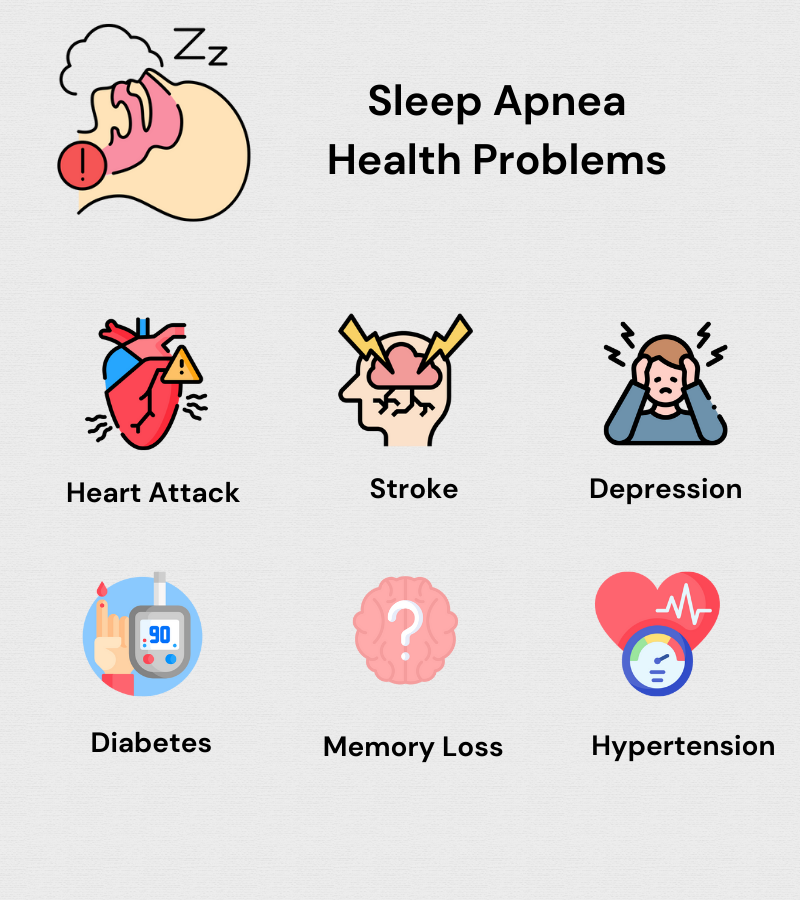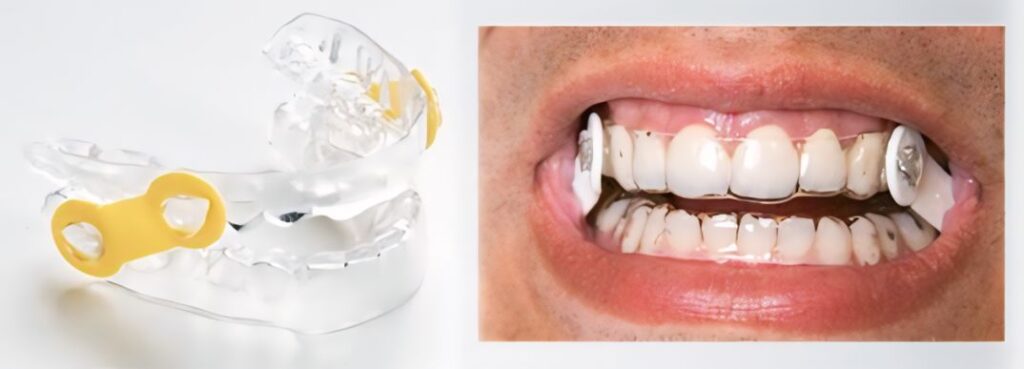Sleep Apnea & Snoring

Effective Solutions for Sleep Apnea and Snoring
Snoring and sleep apnea are common sleep disorders that can significantly impact your quality of life. At TMJ Sleep Clinic, we specialize in diagnosing and treating these conditions to help you achieve restful sleep and improve your overall health.
Understanding Sleep Apnea and Snoring
- Sleep Apnea: A serious condition characterized by pauses in breathing during sleep.
- Snoring: A noisy sound made during sleep, often caused by vibrations of the soft tissues in the back of the throat.
While snoring can be a nuisance, it can also be a symptom of sleep apnea. Both conditions can lead to daytime fatigue, difficulty concentrating, and other health problems.
Understanding Sleep Apnea & Snoring
Common Symptoms of Sleep Apnea and Snoring
- Snoring: Loud, snoring sounds that may disturb others.
- Gasping or choking: Brief periods of gasping or choking during sleep.
- Daytime sleepiness: Excessive daytime drowsiness or fatigue.
- Difficulty concentrating: Trouble focusing or paying attention.
- Headaches: Frequent morning headaches.
- Dry mouth: Waking up with a dry mouth or sore throat.
- Restless sleep: Frequent awakenings or difficulty falling back asleep.
If you are experiencing any of these symptoms, it is important to consult with a healthcare professional for proper evaluation and diagnosis.
Types of Sleep Apnea
There are three main types of sleep apnea:
- Obstructive sleep apnea (OSA): The most common type, caused by the collapse of the airway during sleep.
- Central sleep apnea (CSA): Occurs when the brain fails to send signals to the muscles that control breathing.
- Complex sleep apnea syndrome (CSAS): A combination of OSA and CSA.
Diagnosis
To diagnose sleep apnea, your doctor may recommend a sleep study. This involves monitoring your sleep patterns and breathing while you sleep.
Treatment Options
Our team offers a range of personalized treatment options to address sleep apnea and snoring, including:
- Continuous Positive Airway Pressure (CPAP): A device that delivers a steady stream of air to keep the airway open during sleep.
- Oral Appliances: Custom-made devices that fit over your teeth and jaw to help keep the airway open.
- Lifestyle Changes: Modifying your lifestyle habits, such as losing weight, avoiding alcohol and sedatives, and sleeping on your side.
- Surgery: In some cases, surgery may be recommended to address underlying structural issues that contribute to sleep apnea.
Our team will work closely with you to determine the most appropriate treatment plan and monitor your progress throughout your recovery.
Oral Appliance For Sleep Apnea
Want to know more about how our custom oral appliances can improve your sleep? Contact us today to schedule a consultation.

FAQ's
- Snoring
- Gasping or choking during sleep
- Daytime sleepiness
- Difficulty concentrating
- Headaches
- Dry mouth
- Snoring is often caused by vibrations of the soft tissues in the back of the throat.
- Factors such as obesity, enlarged tonsils or adenoids, alcohol consumption, and certain medications can contribute to snoring.
A sleep study is typically used to diagnose sleep apnea.
- CPAP therapy
- Oral appliances
- Lifestyle changes
Contact Us for Consultations
We manage chronic orofacial pain and dental sleep disorders like snoring and sleep apnea with a multidisciplinary approach to enhance patient outcomes.

